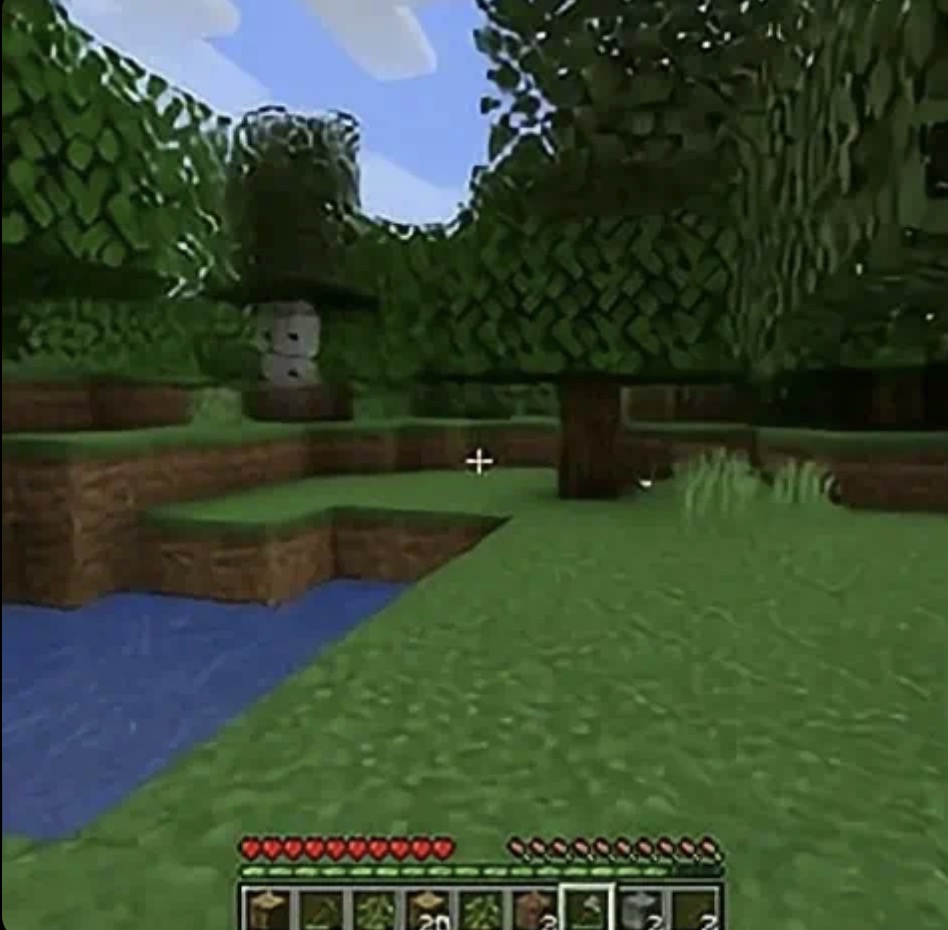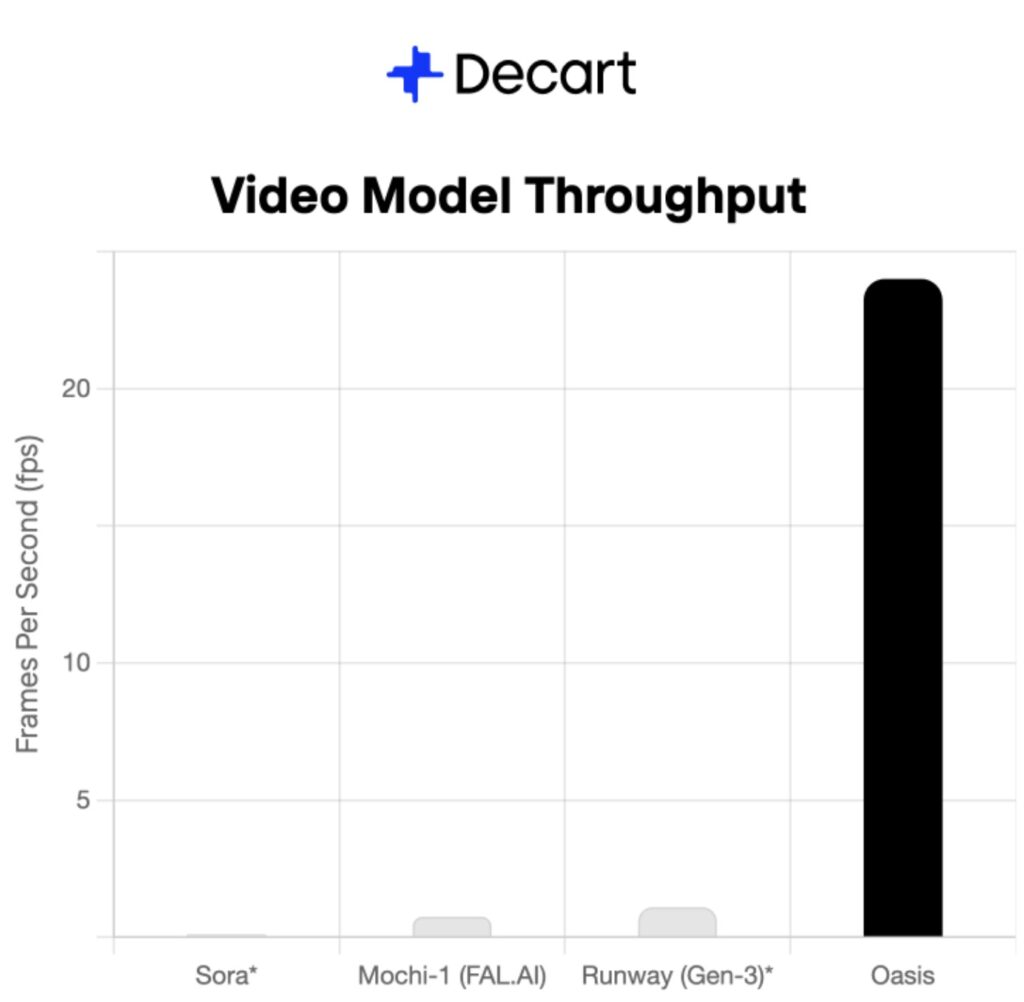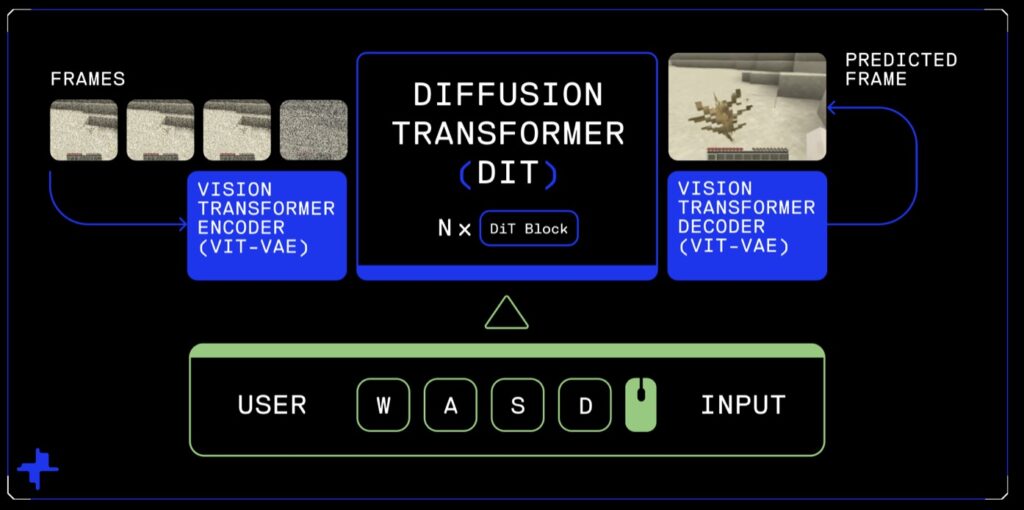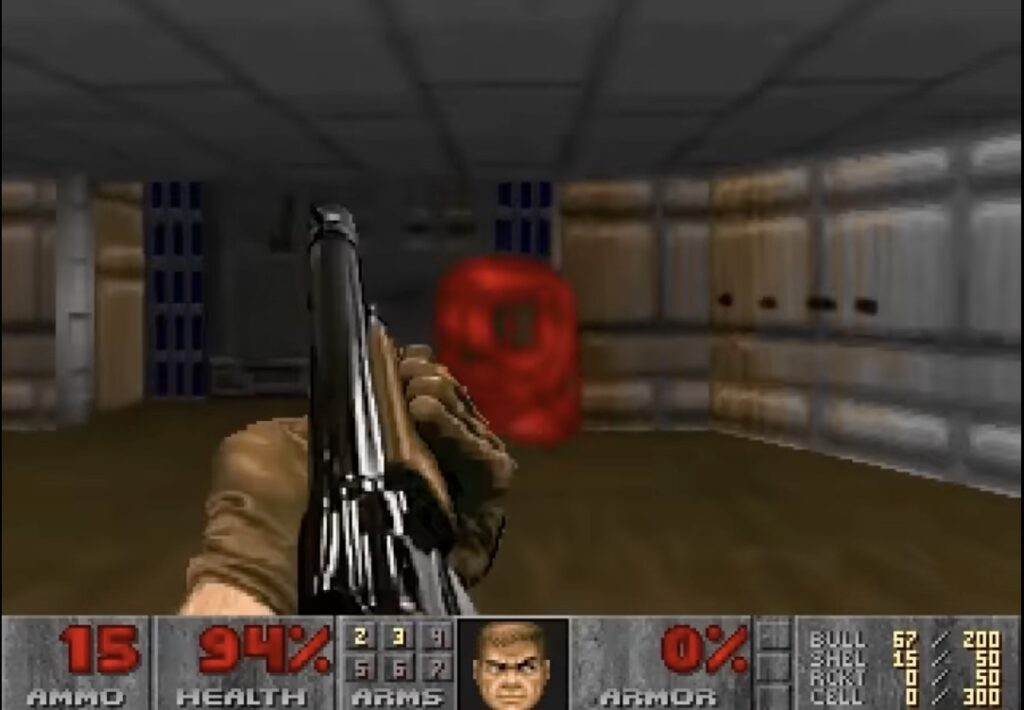With $21M in Funding, Decart’s Groundbreaking AI Model Simulates an Interactive 3D World Like Never Before
- Real-Time Gameplay Generation: Oasis, Decart’s new AI model, creates an interactive, Minecraft-like game in real-time, responding to user inputs and generating frames instantly.
- Technical Advances in AI Gaming: Trained on Minecraft videos, Oasis simulates physics, rules, and graphics without relying on a traditional game engine, pushing the boundaries of AI-driven experiences.
- Future Implications: Decart’s Oasis may herald a new era in gaming and entertainment, where AI dynamically generates content tailored to user preferences and interactions.
In a bold move that could redefine the boundaries of gaming, Israeli AI company Decart has unveiled Oasis, an AI-driven “open-world” model that generates real-time gameplay. Supported by $21 million from investors like Sequoia and Nvidia, Decart has developed Oasis as the first playable, frame-by-frame generative AI model for an interactive video game. Trained by watching Minecraft gameplay, Oasis allows players to navigate a 3D environment, simulate physics, and interact with objects—all powered end-to-end by AI. This game-changing model brings us one step closer to AI-crafted worlds that respond to every user input.

How Oasis Brings Real-Time Gameplay to Life
Oasis’ breakthrough lies in its ability to generate gameplay in real-time by interpreting keyboard and mouse inputs, which drive the game’s physics, rules, and graphics. Decart’s diffusion-trained transformer model creates a sequence of frames instantly, capturing the complex interactions in the game’s world without relying on a standard game engine. Currently running on powerful Nvidia H100 GPUs, Oasis demonstrates how an AI model can not only mimic but also create a playable, open-world experience. Decart envisions future versions of Oasis achieving 4K resolution by optimizing it for Etched’s forthcoming Sohu AI chips.
The Challenges and Potential of Real-Time AI Gaming
While Oasis is an impressive technical demonstration, the model still faces limitations. The graphics resolution remains basic, and the game occasionally “forgets” the environment layout, resulting in sudden changes in the landscape as players move. Nonetheless, Oasis represents a significant leap forward: it suggests a future where AI models could replace traditional game engines, dynamically generating worlds in response to player actions. Such capabilities could lead to a new generation of AI-driven, fully interactive worlds with applications beyond gaming, from virtual training environments to immersive storytelling platforms.

Legal and Ethical Implications for AI-Generated Games
The emergence of Oasis also brings up critical questions around copyright. Since Oasis was trained on Minecraft gameplay, Microsoft’s role as Minecraft’s owner may come into play if this usage infringes on copyright. This situation mirrors the broader legal and ethical conversations around AI’s use of proprietary content, as Decart’s model arguably blurs the line between inspiration and replication. The question of whether Oasis is simply an “AI homage” to Minecraft or an unauthorized reproduction remains to be settled by legal experts, potentially setting important precedents in AI content generation.
Paving the Way for AI-Driven, Interactive Entertainment
For Decart, Oasis is only the beginning of a journey into AI-powered interactive experiences. Decart envisions a future where AI creates real-time game content based on user preferences, potentially responding to textual or audio prompts within gameplay. This level of user-driven interaction could revolutionize gaming, allowing players to shape their experiences in ways previously only possible in custom-built games. Imagine commanding an AI to generate a new challenge or object in the game, like “a pink elephant chasing me,” dynamically shifting the game narrative.

Oasis hints at a transformative shift in gaming and entertainment, where AI doesn’t just enhance gameplay but becomes the engine behind it. As the technology matures and legal frameworks catch up, Decart’s innovations could lead to experiences that redefine player immersion and creativity in digital spaces. With the backing of industry giants and a commitment to developing “world models,” Decart’s Oasis may well be paving the way for AI models that make digital worlds not only playable but responsive to our every move, idea, and desire.



